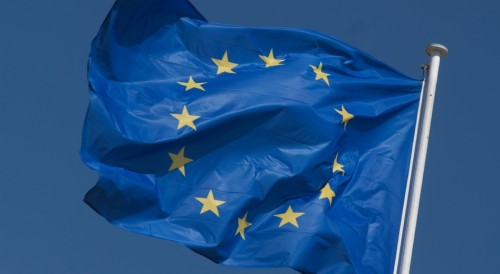Theresa May faced an uncomfortable time on Monday in the House of Commons as she tried unsuccessfully to explain the Government’s opt-out of EU co-operation on justice, crime and policing.
Under pressure from three Select Committee chairs the Home Secretary was dragged to the Commons to explain why the Government was putting vital co-operation with our European allies at risk on issues as important as the trafficking of children, drug smuggling and other organised crime.
In today’s interconnected world, organised crime, terrorism or national security threats do not stop at national borders.
But because of the ongoing internal disagreements within the Tory Party over Europe, David Cameron has chosen to put vital cross-border co-operation with our EU allies at risk, for the sake of appeasing his own restless backbenchers.
The Prime Minister’s only clear policy on the EU continues to be to try to hide the significant divisions within the Conservative Party on whether to leave the EU or not.
Labour is clear that more work has to be done to get EU justice, crime and policing right for Britain. But the truth is that this Government is putting real reform at risk for the sake of playing political games with their own MPs.
The UK needs a Government that puts the national interest above narrow Party concerns and puts ensuring our police and crime agencies have the powers they need to carry out their work first.
The Government may have come to the Chamber this week to try and explain their decision to opt-out, but the debate between MPs focused on what we would need to opt-in to, in order to keep Britain and Britons safe.
Because the truth is that EU cooperation on Crime and Justice is vital in keeping British citizens safe, protecting our national security and achieving justice for crimes committed.
In the past, high profile fugitives could evade arrest by escaping to the fabled ‘Costa Del Crime’ in Spain, but now we have co-ordinated action across EU nations’ police and crime agencies, working together to tackle organised crime, identify dangerous people and strengthen our national security.
Since the European Arrest Warrant was introduced, the UK has deported over 4,000 criminals under its provisions – 95% of whom are foreign nationals. And it has allowed over 600 criminals to be returned here to face British justice for crimes they committed in the UK.
When terrorists tried to undertake a second attack on London in July 2005, one of those responsible – Hussein Osman – fled to Italy, but he was later extradited back to the UK under a European Arrest Warrant and sentenced to 40 years in prison.
Whilst David Cameron has prevaricated, the need for cooperation with our EU allies has grown greater. There are now estimated to be over 3,600 organised crime groups active across the EU.
They are involved in drug smuggling, human trafficking, online child exploitation and theft.
What’s clear today is that cross-border crime is a reality and we need the 21st Century tools to meet the challenge it poses.
But despite the obvious benefits of the European Arrest Warrant, British police and crime agencies have been left in limbo while David Cameron has struggled to decide which areas of cooperation on justice, crime and policing his own backbenchers would allow him to opt back into.
Labour is clear that Britain must retain our cooperation with Europe on policing and criminal justice to help protect us from trans-national threats to our security.
After this week’s debate on the Government’s position, it is even clearer that David Cameron is willing to put party interest above national interest – even on the vital issue of national security.
Gareth Thomas MP is the Shadow Europe Minister




More from LabourList
Almost half of Labour members oppose plans to restrict jury trials, poll finds
‘How Labour can finally fix Britain’s 5G problem’
‘The University of the Air – celebrating 60 years of Harold Wilson and Jennie Lee’s vision’